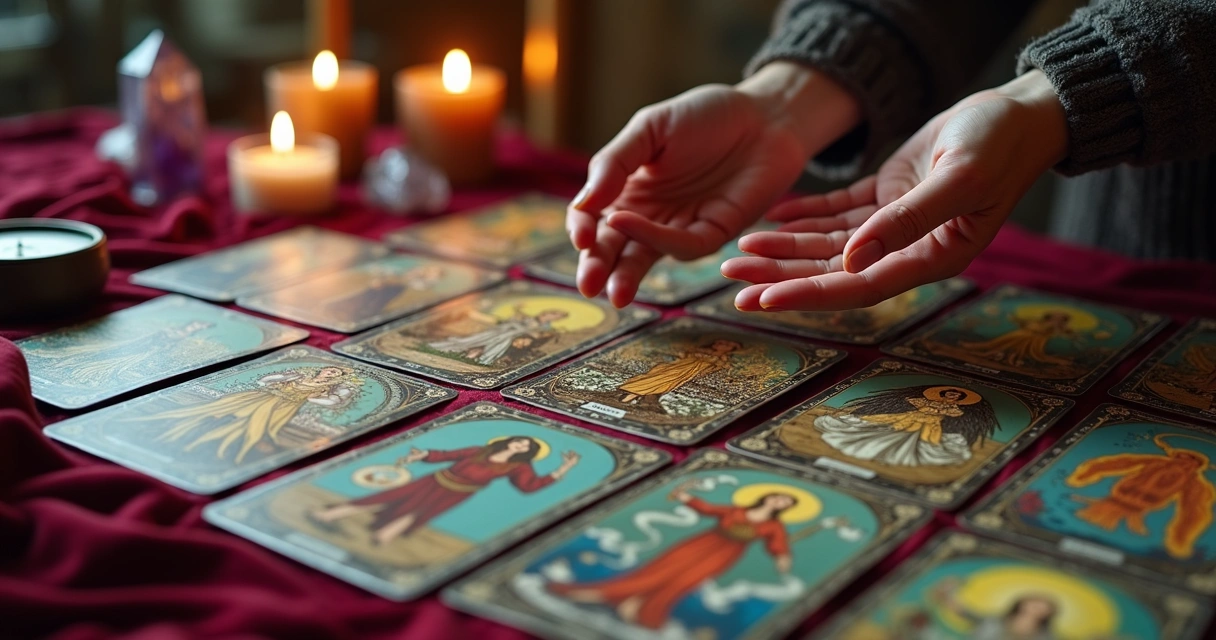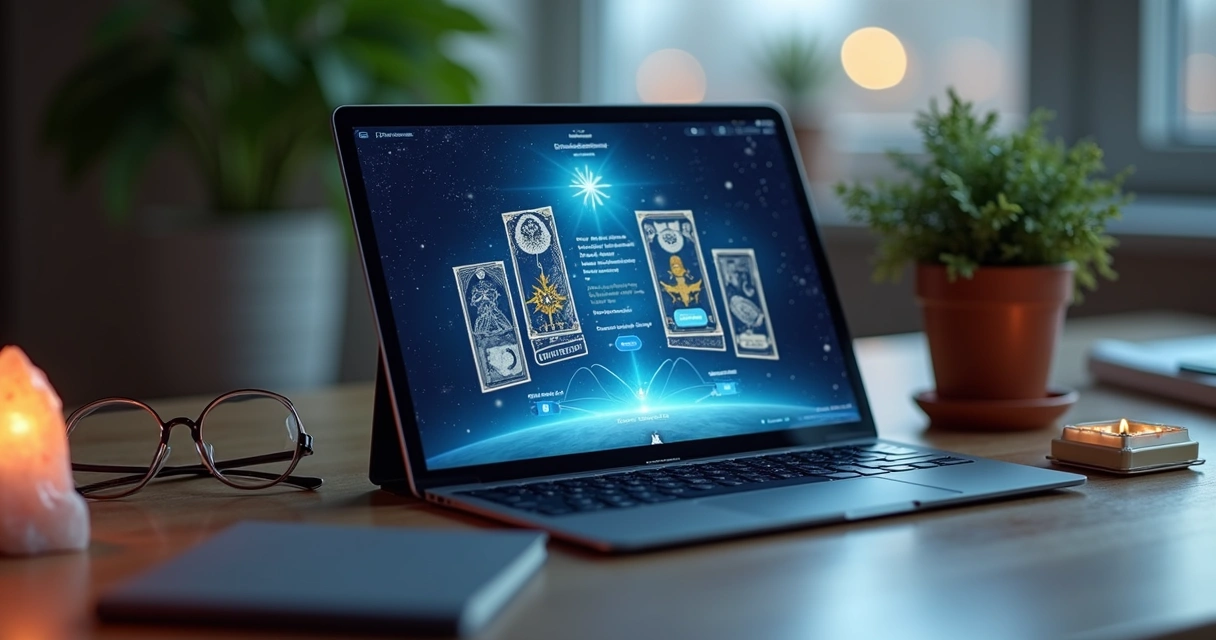People have sought insight, comfort, and understanding through psychic consultations for centuries. From candle-lit tarot sessions to online chats with intuitive advisors, the experience can be personal or even life-changing. Yet, some walk away feeling elated, while others are puzzled or unconvinced. Why such a difference? The answer often lies in the type of session, the tools used, the practitioner’s skills, and, not least, the expectations of the person receiving the reading.
This guide aims to gently shed light on how different reading styles work, how to interpret claims of accuracy, and how to choose someone whose approach matches yours. Whether you’re here from curiosity or you are a dedicated practitioner (perhaps using MysticLog to track your sessions), understanding the layers involved will make your journey more rewarding.
Understanding psychic consultations: an overview
There’s something quietly magical about the idea of someone seeing beneath the surface, finding meaning in patterns or symbols that resonate. Psychic readings (sometimes called intuitive readings or fortune-telling) draw on various belief systems and traditions. But what happens during a session?
A querent (the person seeking insight) usually presents a question, concern, or area of curiosity. The counselor then uses intuition, specific tools, or a mix of both to share impressions, symbols, or advice. Sometimes it’s dramatic and visual, like shuffling tarot cards. Other times it’s quiet and contemplative, as with psychic impressions given by tuning into energies or sensations.
The secret ingredient isn’t only the method, but the connection between the querent and the advisor.
While methods and terminology may vary, there is a common thread: a search for guidance, hope, or deeper meaning. The approach chosen can influence the session’s tone, content, and even perceived accuracy.
Popular types of psychic readings
No two readings look exactly alike. Many experienced psychics blend different approaches and, if they use MysticLog, carefully record the nuances of each session for future reflection. Here’s a look at the most practiced forms:
Tarot and oracle cards
Tarot is instantly recognizable: 78 cards, each carrying layered imagery and symbolism. A deck is shuffled and cards are laid out in a specific spread. Each card’s position and meaning are interpreted in the context of the querent’s question or life story. Oracle cards are similar in spirit, but usually feature different structures and themes—sometimes as few as 36 cards.
- Core skill: Symbolic interpretation and pattern recognition.
- Tools: Tarot or oracle card deck, sometimes a journal or app for notes.
- Strengths: Offers detailed exploration of situations and feelings.
- Challenges: Requires both memory and intuition; biases can creep in if over-relied on.
 If you’re interested in improving your interpretation skills, articles like ways to enhance your intuition during tarot readings can offer helpful pointers for both beginners and seasoned readers.
If you’re interested in improving your interpretation skills, articles like ways to enhance your intuition during tarot readings can offer helpful pointers for both beginners and seasoned readers.
Aura and energy field reading
Less visible but no less meaningful to many, aura readings involve tuning in to the energy field believed to surround a person. The practitioner may describe colors, sensations, or even visual images associated with you. This is a particularly subjective practice and, according to some, requires years of meditation and self-awareness.
- Core skill: Sensitive perception of subtle energies.
- Tools: None for traditional readers, though modern sessions might use photography (Kirlian imaging), colored lights, or guided meditation apps.
- Strengths: Often very personalized; can bring emotional healing.
- Challenges: Results are nearly impossible to validate using scientific means; much rests on the client’s openness.
Numerology
Numbers have fascinated humanity since ancient times. Numerology is based on the idea that numbers in your birth date, name, or important events carry spiritual meaning. By reducing these to core digits, the reader maps out patterns and lessons believed to shape a person’s destiny.
- Core skill: Mathematical calculation and symbolic thinking.
- Tools: Numerology charts, grids, or digital calculators.
- Strengths: Concrete and structured, useful for predictions and character analysis.
- Challenges: Can feel impersonal; not everyone finds resonance with numbers.
Psychometry
Picture someone holding a ring and declaring it ‘full of memories’. Psychometry involves touching an object belonging to the querent and picking up impressions—feelings, images, or sensations—about the owner’s life or experiences.
- Core skill: Intuitive perception and emotional empathy.
- Tools: Personal objects (rings, photos, mementos).
- Strengths: Tangible and interactive, can yield surprising details.
- Challenges: Highly variable; success may depend on physical sensitivity or the energy left in the object.
Mediumship and spirit contact
Mediumship, distinct from general psychic readings, involves contact with spirit guides, ancestors, or otherworldly entities. This can be comforting—or unsettling—depending on beliefs and expectations. Sessions may include relayed messages, descriptions, or even physical displays (such as changes in temperature).
- Core skill: Emotional neutrality, boundary-setting, and discernment.
- Tools: Sometimes none, though some employ seance tools, pendulums, or spirit boards.
- Strengths: Profound emotional or healing impact for some.
- Challenges: Highly controversial and prone to skepticism; ethical concerns arise if exploited.
 The skills behind a quality reading
The skills behind a quality reading
Technique matters, yes, but the reader’s skills shape the entire experience. A gifted practitioner blends innate sensitivity with a lifetime of learning. Here are the skills that most often make a difference:
- Symbol interpretation: Understanding images, numbers, or sensations in layers—not jumping to conclusions, but looking for nuance.
- Active listening: Picking up on what’s said and unsaid, tailoring the session to the querent’s real needs.
- Cultural awareness: Appreciating that images or terms mean different things to different people.
- Communication: Explaining ideas clearly, with kindness and respect, no matter the message.
- Ethical boundaries: Not pretending to know everything, referring clients when other support is needed.
If you’re a professional or aspiring advisor, careful documentation is a quiet asset. Using a system like MysticLog to record insights, impressions, and outcomes creates accountability and helps your growth. Articles like common mistakes in session recording can support this process.
Tools and technology in psychic work
From simple hand-written notes to sophisticated digital platforms, how readings are managed keeps evolving.
Physical tools
- Tarot and oracle cards: Still the classics. Trusted for their structure and imagery, but as unique as the reader’s style.
- Runes and pendulums: Used mostly for specific yes/no or directional guidance.
- Crystals, candles: Used for mood and ritual, sometimes believed to amplify intuition.
Digital tools
The rise of online appointments means more readers manage clients, notes, and session history using secure software. MysticLog, for instance, lets users keep everything organized and even provides an AI co-reader for interpreting symbols or suggesting questions.
Digital spaces have also made it easier for people to receive guidance from anywhere. Personalized readings delivered through chat, email, or even video calls are common. Privacy and confidentiality are central, often more so than in traditional in-person sessions.
 For a perspective on how technology is influencing accuracy and trust, look to guides on AI-enhanced tarot readings.
For a perspective on how technology is influencing accuracy and trust, look to guides on AI-enhanced tarot readings.
Online experiences: free and personalized options
There are now platforms offering automated readings and quizzes, some free, others tailored for a fee. A few main formats include:
- Automated readings: Interactive quizzes or digital card pulls. Fun for entertainment, or for a taste of the process, but unlikely to match the nuance of a live consultation.
- Personalized live consultations: Real human advisors offering tailored insights. Scheduling and privacy are handled through secure software, with options for audio, video, or text-only interactions.
- Hybrid models: AI-driven chatbots guiding you through card meanings or numerological analysis, helpful for practice or educational exploration.
It’s common now for people to seek a free sample term, or an automated message, to check if a reader’s style aligns with their needs. Still, privacy is a recurring concern. Keeping session details in safe, encrypted software like MysticLog reassures those sensitive about data sharing.
The role of artificial intelligence
AI in psychic consultations is a recent, sometimes surprising trend. At first glance, having a computer suggest symbolic interpretations might seem odd. But AI has made it possible for users to:
- Practice interpretation: An AI like MysticLog’s assistant can break down card meanings or ask follow-up questions, perfect for those still learning.
- Get instant feedback: Real-time chat provides ideas any time of day, bridging the gap for solo practitioners or students seeking extra support.
- Maintain privacy: Some find talking to an AI less intimidating, especially for sensitive topics.
An AI assistant may not replace human empathy, but it supports the journey in surprising ways.
Want to see how AI co-reading works? You’ll find more on this in the article “AI and the accuracy of tarot consultations.”
Accuracy, skepticism, and scientific views
Here’s the big question: Are psychic insights real, or is it just suggestion? The answer isn’t as clear as some hope—or fear.
- Scientific perspectives: Studies such as government research in ‘psychic spying’ found statistically significant results, though interpretations vary and controversy persists. Others, like a systematic review in PMC, suggest that paranormal belief links with lower analytical thinking and randomness perception.
- Skepticism: According to a study listed on PubMed, skeptics tend to outperform believers in analytical tasks, raising interesting debates about belief versus evidence.
- Subjective value: Oddly enough, those seeing a psychic for help with stress or emotional issues sometimes report better perceived outcomes than with conventional providers, per findings on PubMed.
It’s a subtle topic. Some readers—and clients—simply know when the guidance “rings true.” For others, accuracy is more about the personal connection formed or the emotional clarity gained.
 If you like reading different perspectives on belief and skepticism, browse the spirituality articles on MysticLog’s blog for nuanced takes.
If you like reading different perspectives on belief and skepticism, browse the spirituality articles on MysticLog’s blog for nuanced takes.
How to choose the right psychic for you
This is both practical and deeply personal. There are plenty of well-meaning, capable intuitive professionals. But which one matches your needs? Some useful points to consider:
- Read profiles and reviews: Look for practitioners who describe their process clearly. Are they more predictive or reflective? Do they focus on healing, insight, or direct advice?
- Check credentials (if important to you): Some practitioners are certified through national or international organizations, others work from family traditions.
- Assess privacy and transparency: Especially online, ask about how your data is stored. Using a trustworthy platform—like MysticLog—protects your information and notes.
- Have a conversation: Before booking a full session, request a brief chat or sample question. This gives a feel for their style and personality.
- Listen to your comfort level: If something feels off, move on. If you feel welcome and respected, that’s a good sign.
Curious about traditional versus current approaches? The article A guide to the fortune teller’s craft paints a picture of evolving methods.
Ideally, you want someone whose answers encourage growth, not dependence—someone whose style matches yours, who listens and respects your boundaries. Authenticity and alignment make all the difference for a satisfying experience.
Conclusion: your next steps on this journey
Whether you’re intrigued by tarot, mystified by aura readings, or productively skeptical about everything in between, the world of psychic consultations is rich and layered. The value offered isn’t always about precise prediction. It often lies in new perspectives and quiet nudges toward self-understanding. Take your time choosing a path or a professional who aligns with you.
MysticLog is here to support professionals and seekers alike, offering tools to stay organized, protect privacy, and even guide you with a mystical AI assistant if you wish. If you’re ready to deepen your spiritual practice, manage your readings, or just want to experience a modern approach to age-old wisdom, we invite you to discover what MysticLog has to offer. Your journey to clarity and growth begins with one step—maybe today is that day.
Frequently asked questions about psychic readings
What are psychic readings?
Psychic readings are consultations where an individual, often called a psychic or intuitive advisor, uses extrasensory perception or symbolic systems (such as tarot cards, numerology, or intuition) to provide insights, guidance, or advice. These sessions may address questions about relationships, career, life purpose, or emotional concerns. Readings vary widely in style and method. Some practitioners rely on tools like cards or crystals, while others use their perception of energies or even communicate with spirits.
How accurate are psychic readings?
The question of accuracy is debated. Some clients report experiences that feel remarkably true or relevant, while others remain skeptical. Scientific studies, such as long-term government research, have offered intriguing, if inconclusive, results. Subjective value can be high: many people feel better or gain clarity after a session, as highlighted in PubMed research on psychic consultation outcomes. For some, the process is more about personal reflection than definitive answers.
How much do psychic readings cost?
Costs vary a lot. Some readers offer free mini-sessions or demonstrations, especially in online spaces. In-person or detailed video/chat sessions typically range from a modest fee ($10-$30 for a short reading) to well over $100 for experienced or specialized professionals. Factors include the advisor’s reputation, the time spent, the tools used, and the session’s privacy. Trial or sample readings can be an affordable way to find the right match.
Where can I get a psychic reading?
People find psychic readings through metaphysical shops, private offices, holistic fairs, and, increasingly, online platforms. Remote options include live video, phone, or chat, often enhanced by software for privacy and secure payment. Dedicated apps like MysticLog can connect you to trusted professionals, manage your notes, and even let you use an AI assistant for practice. Look for spaces that prioritize client safety, confidentiality, and a clear explanation of their methods.
Is a psychic reading worth it?
The answer depends on your expectations and needs. If you’re open-minded and curious, a session can offer comfort, perspective, or even emotional healing—results many find meaningful, as seen in PubMed’s survey of psychic healer users. For others, especially skeptics, the experience may be more entertainment or a source of fresh ideas. For best results, go in with specific questions, a sense of curiosity, and an understanding of what the session can (and cannot) promise.

